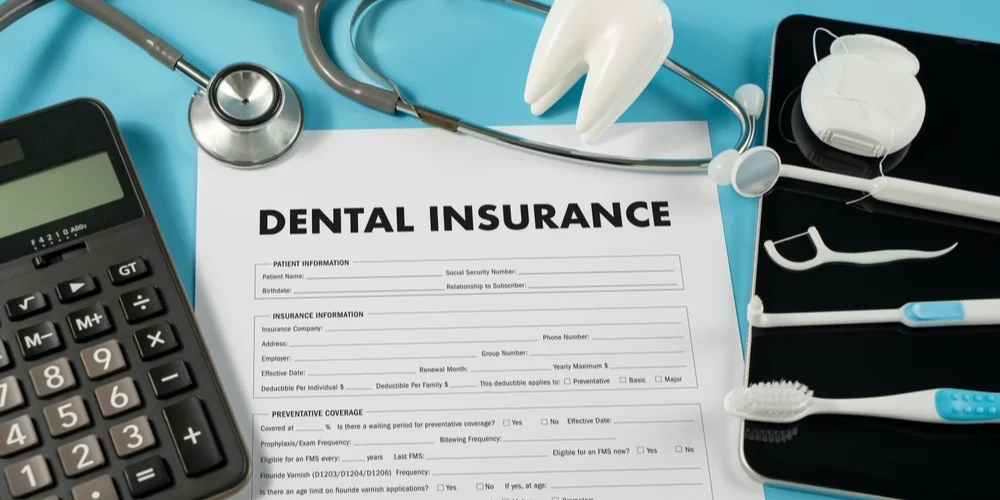
Get the 10 Best Dental Insurance Plans for Individuals
Outline
- Introduction
- Understanding Dental Insurance Plans
- DHMO vs. PPO: Which is Better for Dental Care?
- Coverage and Costs
- Types of Dental Insurance Plans
- Preventive vs. Major Dental Care
- The 10 Best Dental Insurance Plans for Individuals
- Enroll in a Dental Plan
- Tips for Choosing the Right Plan
Essential Considerations When Choosing a Dental Insurance Plan
- How to Maximize Your Dental Insurance Benefits
FAQs About Dental Insurance Plans
Introduction
Finding the best dental insurance plan can feel overwhelming, especially when faced with many options. Whether you are searching for comprehensive coverage, affordability, or specific benefits, choosing the right strategy is crucial for maintaining your dental health. This guide will help you get the 10 Best Dental Insurance Plans for Individuals catering to various needs and preferences.
Understanding Dental Insurance Plans

Before diving into the top plans, it’s essential to understand the basics of dental insurance. Dental insurance plans generally fall into three categories: Dental Health Maintenance Organizations (DHMO), Preferred Provider Organizations (PPO), and Fee-for-Service Plans. Each type has advantages and limitations, depending on the type of dental care you need.
DHMO vs. PPO: Which is Better for Dental Care?

Network flexibility, cost, and coverage should be considered when comparing whether an HMO or PPO is better for dental care. DHMOs typically offer lower premiums and focus on in-network care. At the same time, PPOs provide more flexibility by covering both in-network and out-of-network services, albeit at a higher cost.
Coverage and Costs
Dental insurance plans can vary significantly in terms of coverage and costs. Some plans may offer extensive coverage for preventive services, such as cleanings and exams, while others may provide comprehensive care, including major dental procedures like root canals and crowns.
Types of Dental Insurance Plans

Individual, family, and employer-sponsored dental insurance plans are available. When evaluating these plans, consider what dental services are covered, the lifetime maximum benefit, and any 12-month waiting period that may apply.
Preventive vs. Major Dental Care
A key consideration is whether the plan covers 100% of preventive care. Preventive services are often fully covered, but primary dental care may require higher out-of-pocket costs. Be sure to check if there is a waiting period for preventive services, as some plans impose a 12-month waiting period before specific procedures are covered.
The 10 Best Dental Insurance Plans for Individuals

Here are the top 10 dental insurance plans that offer a balance of affordability, coverage, and flexibility:
Comprehensive Care Plan
This plan is ideal for individuals seeking extensive dental coverage, including significant procedures. It covers a wide range of services with minimal out-of-pocket costs. The lifetime maximum is high, ensuring long-term benefits.
Preventive Plus Plan
This plan focuses on preventive care and covers 100% of preventive services such as cleanings and exams. It’s perfect for those who prioritize routine dental visits and want to avoid a 12-month waiting period for these services.
DHMO Basic Plan
The DHMO Basic Plan offers low premiums and access to in-network dentists for those on a tight budget. While the coverage is more limited, it’s an excellent option for individuals who need essential dental care without breaking the bank.
PPO Flex Plan
The PPO Flex Plan offers the best of both worlds, covering both in-network and out-of-network providers. It’s an excellent choice for those who want flexibility and are willing to pay more for broader access.
No Waiting Period Plan
This plan is perfect for individuals who need immediate dental care. It eliminates the 12-month waiting period, making getting coverage for procedures like root canals and crowns easier as soon as you enrol.
Family Dental Plan

If you need coverage for your entire family, this plan offers comprehensive dental services for all ages. It includes preventive care, orthodontics, and major dental procedures, making it a versatile option for families.
Affordable Essential Plan
Designed for those who want basic dental coverage at an affordable price, this plan covers essential services with a focus on preventive care. It’s an excellent option for individuals who wish to keep their pocket costs low.
Senior Dental Plan
The Senior Dental Plan, tailored for older adults, covers age-specific dental needs, including dentures and periodontal care. It also offers generous preventive care benefits and a high lifetime maximum.
High Deductible Plan
For those willing to take on a higher deductible in exchange for lower monthly premiums, this plan offers a cost-effective way to access dental care. It’s suitable for individuals who need occasional dental services but want to minimize monthly expenses.
Premium Plus Plan
Suppose you’re looking for top-tier coverage with no compromises. The Premium Plus Plan offers extensive benefits, including full coverage for preventive services, primary dental care, and a high lifetime maximum. It’s ideal for those who want the best dental coverage available.
Enroll in a Dental Plan
When you’re ready to enrol in a dental plan, consider your specific dental needs, budget, and the level of coverage you require. Compare the plans at various prices and evaluate the benefits to find the best fit for you.
Tips for Choosing the Right Plan

Evaluate Your Dental Needs:
Consider whether you need extensive coverage or primary preventive care.
Check the Network:
Ensure your preferred dentists are within the plan’s network.
Consider the Costs:
Look at premiums and out-of-pocket expenses to find a plan that fits your budget.
Review the Benefits:
Pay attention to what services are covered, including preventive care, significant procedures, and any waiting periods.
Essential Considerations When Choosing a Dental Insurance Plan

While finding the right dental insurance plan involves understanding coverage and costs, several other factors can impact your decision. Here’s what you should keep in mind:
Lifetime Maximums and Annual Limits
Most dental insurance plans have a lifetime maximum or an annual limit, the maximum amount the insurer will pay for your dental care during a given period. Choosing a plan with a limit that suits your expected dental needs is crucial. For instance, if you anticipate needing major dental procedures like implants or crowns, opt for a plan with a higher maximum to avoid significant out-of-pocket costs.
Waiting Periods
Waiting periods can be significant, especially if you need immediate dental care. Many plans impose a 12-month waiting period for primary dental services, meaning you won’t be able to access coverage for specific procedures once this period has passed. If you need immediate coverage, look for plans with either no waiting period or a shorter one.
Network and Out-of-Network Coverage
Choosing between a plan that covers only in-network providers versus one that covers out-of-network services can impact your flexibility and costs. Network and out-of-network coverage should be carefully considered, especially if you have a preferred dentist who may not be part of an insurance network. PPO plans typically offer broader coverage for out-of-network providers, albeit at a higher cost.
Preventive Services Coverage
Preventive care is the foundation of good oral health; many dental plans emphasize coverage for these services. Plans that cover 100% of preventive care can help you avoid costly dental issues by encouraging regular check-ups and cleanings. Ensure that your plan fully covers these services without additional out-of-pocket costs.
Types of Dental Procedures Covered
Different plans offer varying levels of coverage for various types of dental procedures. Basic plans might only cover essential services like cleanings and exams, while more comprehensive plans provide coverage for primary dental care, including root canals, crowns, and orthodontics. Assess the range of services covered and align it with your anticipated dental needs.
Emergency Dental Coverage
Dental emergencies can occur unexpectedly, and not all insurance plans cover them. When selecting a plan, consider whether it offers adequate coverage for emergencies, including sudden toothaches, broken teeth, or oral injuries. Some plans provide better coverage for emergency dental services, reducing the financial burden during unforeseen situations.
How to Maximize Your Dental Insurance Benefits

To get the most out of your dental insurance plan, follow these tips:
Stay In-Network
Whenever possible, use in-network providers to take advantage of lower costs. In-network dentists have pre-negotiated rates with the insurance company, which helps reduce your out-of-pocket expenses. Using out-of-network providers often increases charges that your needs may only partially cover.
Schedule Regular Check-Ups
Regular dental check-ups are essential for maintaining good oral health and preventing serious dental issues. Most plans fully cover routine exams and cleanings, so take advantage of these benefits. This keeps your teeth and gums healthy and helps avoid more costly treatments later.
Plan Major Procedures Carefully
If you need major dental work, such as implants or orthodontics, plan these procedures with your dentist. Some plans have annual coverage limits, so spreading out expensive treatments over multiple plan years may be beneficial to maximize your benefits.
Understand Your Policy
Take the time to read and understand your dental insurance policy thoroughly. Knowing what is covered, any exclusions, and how to file claims can save you time and frustration later. If you have any questions about your coverage, don’t hesitate to contact your insurance provider for clarification.
Use Flexible Spending Accounts (FSAs) or Health Savings Accounts (HSAs)

If your employer offers an FSA or HSA, consider using these accounts to pay dental expenses. Contributions to FSAs and HSAs are pre-tax, which can reduce your taxable income and help you save money on out-of-pocket dental costs.
Conclusion
Choosing the right dental insurance plan is essential for maintaining oral health and managing dental expenses. You can select a plan that meets your needs by considering coverage, costs, waiting periods, and network options. Whether you’re looking for preventive care, major dental procedures, or flexibility in choosing your provider, there’s a plan out there that will fit your budget and lifestyle.
Final Thoughts on Dental Insurance

Choosing the right dental insurance plan is crucial for maintaining oral health and managing dental expenses. By understanding the different types of plans and evaluating your needs, you can confidently select a plan that offers the best coverage and cost. Whether you’re looking for comprehensive care, affordability, or flexibility, there is a plan that meets your needs.
FAQs About Dental Insurance Plans
To help you further navigate the process of choosing the right dental insurance plan, here are answers to some common questions:
What is the difference between DHMO and PPO plans?
DHMO (Dental Health Maintenance Organization) plans typically require you to use dentists within a specific network and often have lower premiums. PPO (Preferred Provider Organization) plans to offer more flexibility by allowing you to see both in-network and out-of-network dentists, but they usually come with higher premiums.
Can I switch dental insurance plans at any time?
In most cases, you can only switch dental insurance plans during open enrollment periods or if you experience a qualifying life event, such as a change in employment. However, some individual plans may allow you to enrol or switch plans anytime. It’s essential to check the specific terms of the insurance provider.
What happens if I exceed my plan’s annual limit?
If you exceed your plan’s annual limit, you will be responsible for any additional dental expenses out-of-pocket. To avoid this, plan your dental treatments carefully and consider spreading costly procedures over multiple years if possible.
Does insurance cover cosmetic dental procedures?
Most dental insurance plans do not cover cosmetic procedures, such as teeth whitening or veneers, as they are not considered medically necessary. However, some plans may offer discounts for these services, so it’s worth checking with your provider.
Is orthodontic coverage included in most dental insurance plans?
Orthodontic coverage is not included in all dental insurance plans and is often considered an add-on or a separate plan. If you or a family member needs braces or other orthodontic treatment, look for a plan that includes orthodontic benefits.
1 thought on “Get the 10 Best Dental Insurance Plans for Individuals”
Leave a Comment Cancel Reply
Related Post list
-
Opps, No posts were found.








I offer backlink approval services for $5 on my website. Let me know if you’re interested!